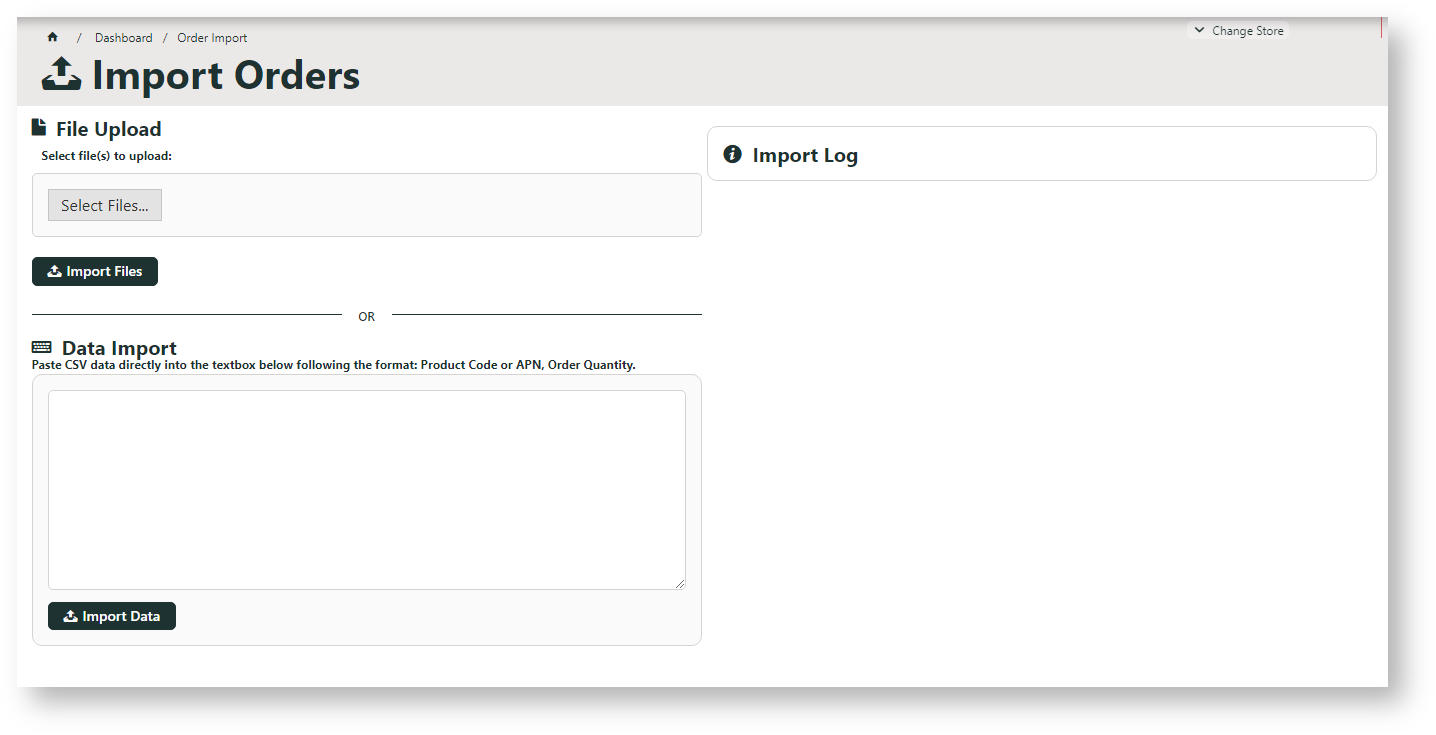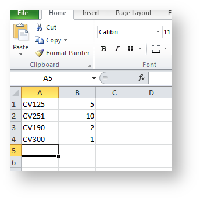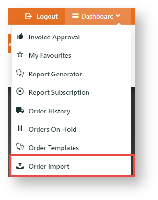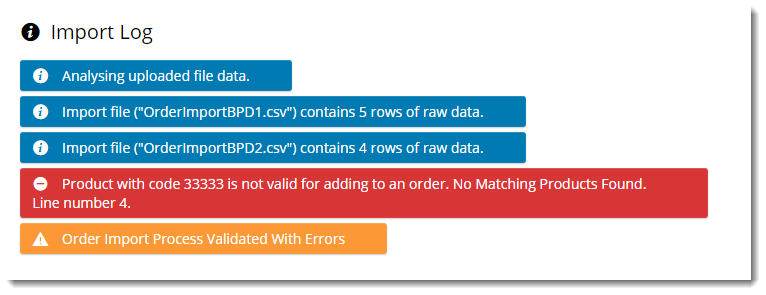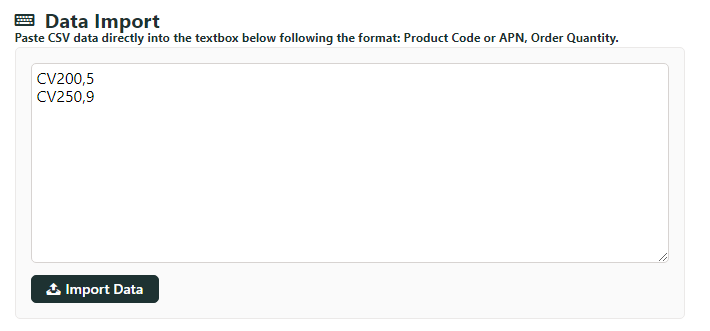Step-by-step guide
CSV file import method
To create an order from imported data:
- Have one or more .csv files with requested product details, or prepare the data for copy and pasting.
- CSV file: An order line is created from data in the first two columns. Use the first column for the Product Code (or APN), and the second, for Order Quantity. DO NOT include a header row.
- Flat text data: Copy and paste data are ordered in this way: Product Code (or APN), Order Quantity
- When logged into the website, go to Dashboard → Order Import.
- Click Select Files to browse to the saved .csv files, or drag and drop files from your local directory into the selection box.
- NOTE - To enable multiple file selection, toggle ON Allow Multiple Files in the Order Import widget. Data from all files will be uploaded to the cart. (Multiple orders will not be created).
- Click Import Files.
- Check the Import Log for data analysed, as well as any errors encountered (e.g., invalid product codes).
Check that imported items are in the Shopping Cart.
Note If there were errors in your data and your cart is empty, you can ask us to update the default import behaviour setting. When the 'Order Import Skip Errors' flag is enabled the invalid lines will be ignored and the rest of the data will be imported.
- Proceed to checkout.
- Repeat Steps 1-8 for subsequent orders as required.
Data
...
copy and
...
paste method
| Tip |
|---|
Instead of uploading .csv files, you can also enter or paste data (Product Code,Quantity) into the Data Import box. Example: CV200,5 |
Additional Information
| Multiexcerpt | ||
|---|---|---|
| ||
| -- |
| Multiexcerpt | ||||
|---|---|---|---|---|
| ||||
| Minimum Version Requirements |
| |||||
|---|---|---|---|---|---|---|
| Prerequisites |
| |||||
| Self Configurable |
| |||||
| Business Function |
| |||||
| BPD Only? |
| |||||
| B2B/B2C/Both |
| |||||
| Third Party Costs |
|
Related help
| Content by Label | ||||||||||||||||||
|---|---|---|---|---|---|---|---|---|---|---|---|---|---|---|---|---|---|---|
|
